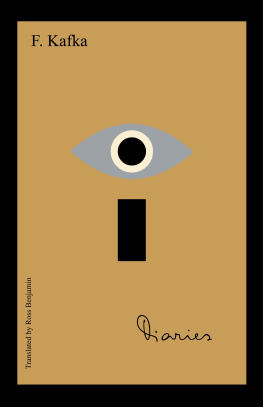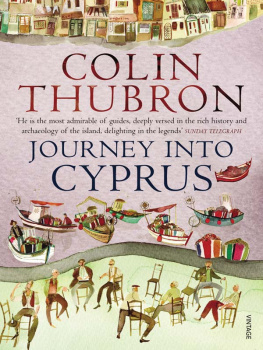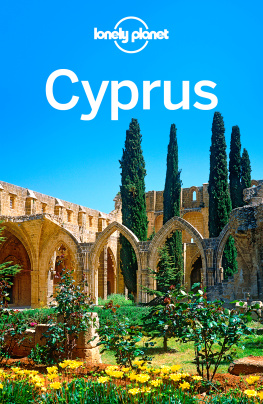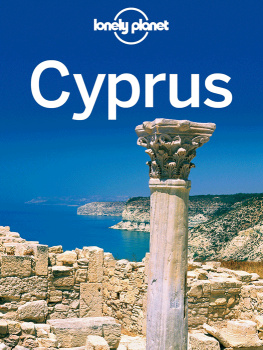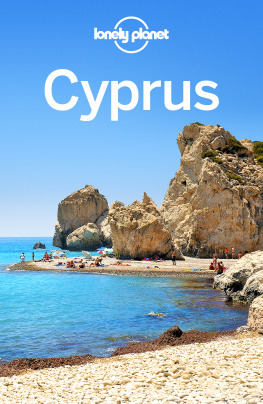INTRODUCTION.
Table of Contents
The sudden interest created by recent political events in everything relating to Cyprus, an island which, from its geographical position, seems destined to play no unimportant part in modern history, has rendered the appearance of Herr von Lhers narrative of his recent journeyings through the length and breadth of that country extremely welcome. It is therefore with much pleasure we have received permission from the Author to lay before the British Public an adaptation of his book (only published during the last few days) which seems well suited to supply information, such as is at present much needed in England.
The island of Cyprus from the first dawn of civilisation has been classic ground, extremely interesting to antiquaries, and its history throughout the Middle Ages is largely blended with tales of chivalry and romantic incidents, such as in these matter-of-fact times are scarcely cared for by speculators, whose object is to obtain reliable information on subjects of more practical importance, such as the resources of the country, the character of its soil, the capabilities of its surface, and the industry of its inhabitants. Lessons upon these points are only to be learned from a careful survey, such as that accomplished by our author, who, uninfluenced by prejudice, describes in simple narrative the actual condition of the island, the scenery of the interior, and the everyday employments and pursuits of the people, thus removing many erroneous impressions as to the condition of the Cypriotes, and leaving the reader to form his own opinion as to the status and prospects of our new acquisition. All information connected with these points we have carefully rendered, only omitting such matter as appeared irrelevant, and calculated unnecessarily to increase the size of the book. Additional information gleaned from various sources, relative to the general history and statistics of the island, is to be found in the Appendix.
That the climate of Cyprus is delightful, the soil prolific, and the landscape in some parts of the country of surpassing beauty, we have abundant testimony in the writings of classic authors, and there is no reason to suppose that in these respects its attractions have deteriorated. A late writer, J. Jasinides, who died at a good old age at Koutzovendi, in Cyprus, in 1871, at the conclusion of his work Les Iles Mediterrane, thus expresses himself: For forty years I have been wandering from isle to isle, ascertaining their political, commercial, and social aspect, and this island (Cyprus) notwithstanding the barbarism of its present rulers, through which it is cut off from the rest of the world, is my favourite.... It is a little world in itself; here do I wish to die. My limited means will keep me in comparative luxury. Although old, I am strong and feel young, no wild beasts or reptiles disturb my solitude, the water is sweet and cool, the wine is nectar, and the food plain but good; above all I know that my grave will be respected, and that kind hands will close my eyes.
M. A. J.
London, 1878.
CHAPTER I.
LARNAKA.
Table of Contents
The first approach to Larnaka, the chief sea-port of Cyprus, is well calculated to impress the traveller. The boundless expanse of blue sky and sea, the bold outline of the hills and mountains, brought out as they are into sharp relief by the clearness and brilliancy of the atmosphere, seem to throw the works of man far into the background and boldly assert the simple grandeur of nature.
Such were my involuntary reflections as we dropped anchor in the roads of Larnaka on April 21st, 1877. This entrance to the island displays an expansive bay, the yellow sands of which are bordered by an extensive plain, broken by bare and rocky hills, and in the blue distance backed by a chain of mountains. A landscape was before me, in which the towns, gardens, and buildings constituted only minor accessories. Larnaka appeared as a mere speck on the bosom of the open country. The haven contains about fifty houses, built in the centre of the curve of the bay, and above them wave the variegated flags of the different consulates, surmounted by pointed minarets and a new belfry. The town of Larnaka itself lies far behind, and is separated by wide fields from the haven. Thanks to the kindness of the German consul, a friendly welcome awaited me at the landing-place, where I found a dragoman ready to conduct me to my destination. Before leaving the haven, however, I inspected its streets, which presented an animated appearance. Artisans plied their trades in all directions, and dirt reigned supreme. The rows of houses interspersed with stately mansions, churches, and gardens, filled with waving palms, constitute its principal attractions; all else is strictly Oriental, namely, its filth, rags, and miserable huts of wood and clay.
In the Catholic church, we found a solitary monk, who showed us some fine carvings. The pictures upon the partition which separates the altar from the rest of the church are diligently kissed by the worshippers. I could not but approve this custom, if only from the fact that a law of the church required that no one should salute the sacred pictures without previously washing his face. This ceremony takes place once a week, so that, happily, the gold and silver covered panels are not distinguished by a black circle in the spots where they are kissed. With the exception of an occasional block of marble built into the walls of a house, or a sarcophagus, utilised as a receptacle for water, I saw nothing to recall the ancient power of the busy crowds that once animated this spot. Their tombs, excavated in the stratum of chalk, which lies below the surface, were once filled with marble sarcophagi, which century by century have been dragged out and employed for building purposes. Hence the revolting name given to this town, for Larnaka, literally interpreted, means simply a coffin. Others, however, assert that the name is derived from the fact that the houses were built upon the site of an ancient graveyard.
The Phnicians are believed to have first founded a town here and called it Kiti; by the Greeks it was known as Kition, and from this source was derived the Asiatic designation of Kitier, for the inhabitants of Cyprus. At a later date Grecian settlers took possession of it; artists, weavers, and artisans in large numbers poured in, and dwelt side by side with the Syrians, but occupying their own part of the town, gradually introducing their own language to common use as in Antioch and Alexandria, and giving a Grecian tone to the education of the higher classes. The Latin tongue, on the contrary, seems never to have gained a footing in the East. Cyprus, however, formed an exception to this rule, and during the four centuries that the island was subject to the sway of the Lusignan dynasty, and Venetian rule, Latin was in general use. Not a trace of it, however, now remains. Modern Greek is spoken, even in most of the Turkish houses, and is understood in every part of the country. The consulate body in Larnaka has representatives from every state in Europe. Its haven is the best in the island, although on account of the shallowness of the water, vessels are compelled to steer clear of the sand and ride at some distance from the town.




